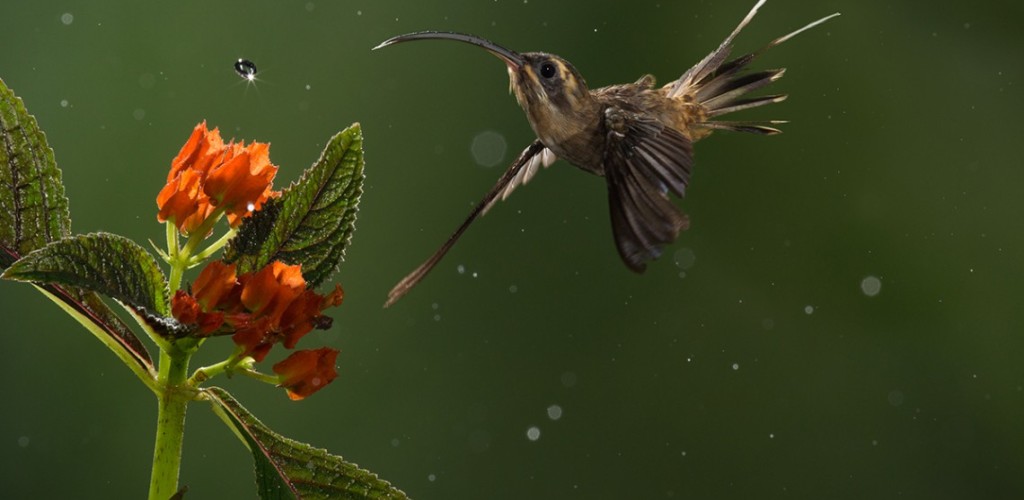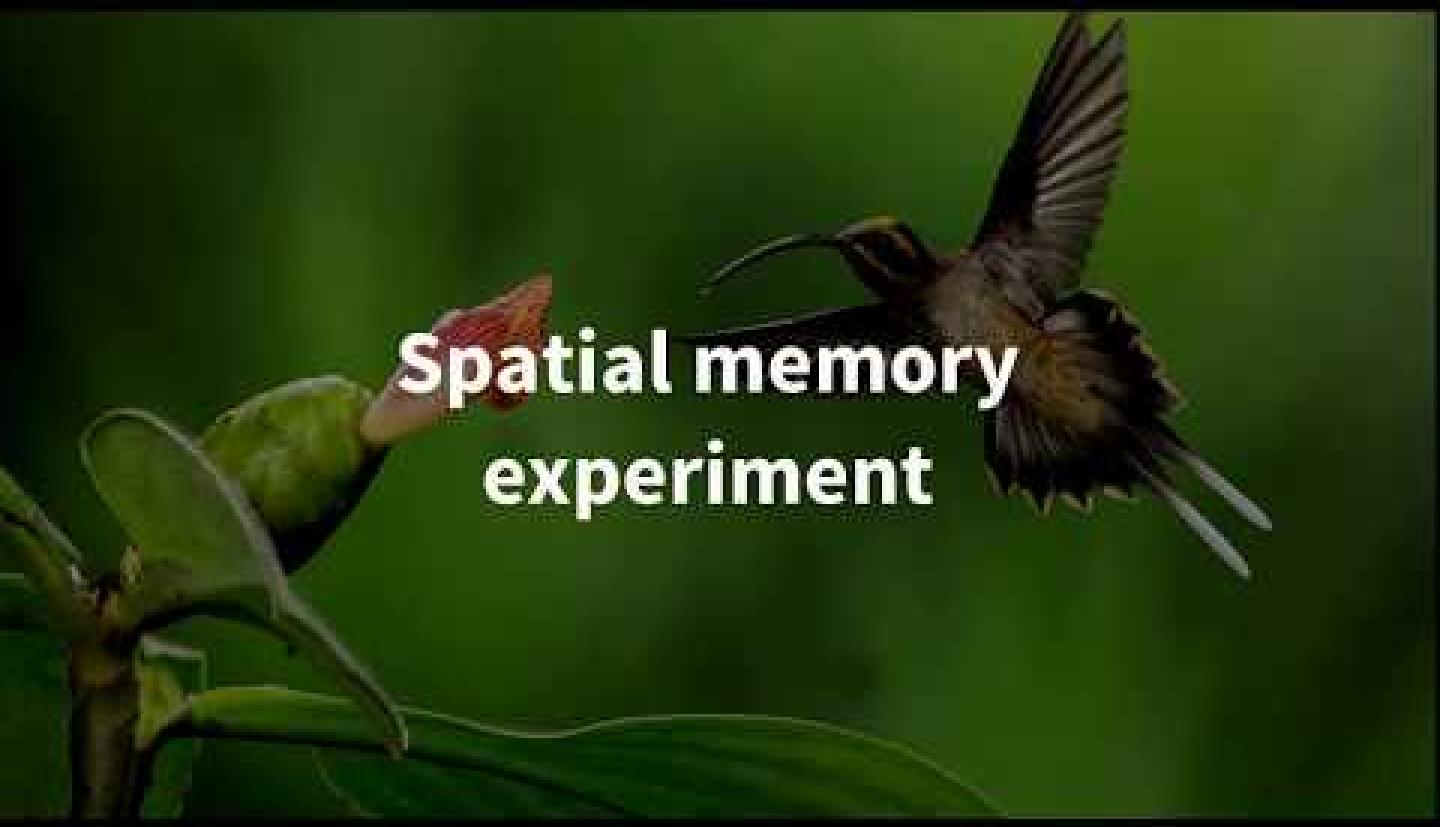Competing for mates is often a showy affair: Think of elk tangling antlers or tom turkeys strutting. But for a Costa Rican hummingbird, the long-billed hermit, it seems that mental prowess holds an edge over physical flamboyance. The benefit of a good spatial memory even outweighs the advantages of a bigger body and extra flight power.
“When we think about smart animals, we usually think about dolphins, crows, primates,” said Marcelo Araya-Salas, a Cornell Lab of Ornithology postdoctoral fellow and lead author of the paper published in the January Scientific Reports. “But it’s everywhere. Every animal is going to gain some clear advantage from learning about their environment. As behavioral ecologists, we are starting to unveil this other side of animal behavior.”
Male long-billed hermits perch in the forest understory and sing incessantly for eight months of the year at display sites known as leks. The dominant males fight over coveted singing perches, sometimes stabbing at each other with specially sharpened bill tips. Less dominant males, known as “floaters,” wait and watch but don’t claim a perch.
Displaying males risk losing their spot if they leave to refuel, so there’s a premium on getting to flowers quickly, and remembering which ones are full of nectar from among the thousands in the forest.
Araya-Salas and his colleagues set up a row of three hummingbird feeders near the leks: two contained only water; one had sugar water. On a male’s first visit, he found out which feeder held the goods. On the second visit, the researchers recorded whether the bird found the sugar water on his first try. In all, they tested 30 male hermits from 3 leks.
“There was one male who got all the trials right; he never missed the rewarding feeder,” Araya-Salas said. “And there was a male that did no better than you would expect by chance. So there was the whole range of performance on display.”
Birds that showed better spatial memory were more likely to be dominant birds with perches at the lek, while the floaters were the ones that couldn’t remember which feeder was which. The pattern was independent of age, body size, bill-tip size and flying power (as measured in a cage). So it wasn’t just older or bigger males that were dominant – a better memory worked better than physical attributes when it came to winning space at the lek.
The researchers also noted that males with better spatial memory also sang more consistent songs. It’s thought this ability is attractive to females, because it means the singer sounds less like an inexperienced youngster and more like a veteran survivor.
Araya-Salas said it’s still hard to compare long-billed hermits against the bird world’s most famous memory artists, birds like the Pinyon Jay and Clark’s Nutcracker, because the tasks – tracking flower ripeness day to day vs. stashing seeds in the ground – are so different. But the exciting thing, he said, is the recognition that cognitive abilities are important.
“We always think we are the smart species – we are the ones with game-changing intelligence.” Araya-Salas said. “But it’s a matter of degree, and we are more similar to the other animals than we think.”
The research was supported by the National Geographic Society, New Mexico State University, the Organization for Tropical Studies and the British Ornithologists’ Union.
Hugh Powell is science editor at the Cornell Lab of Ornithology.






